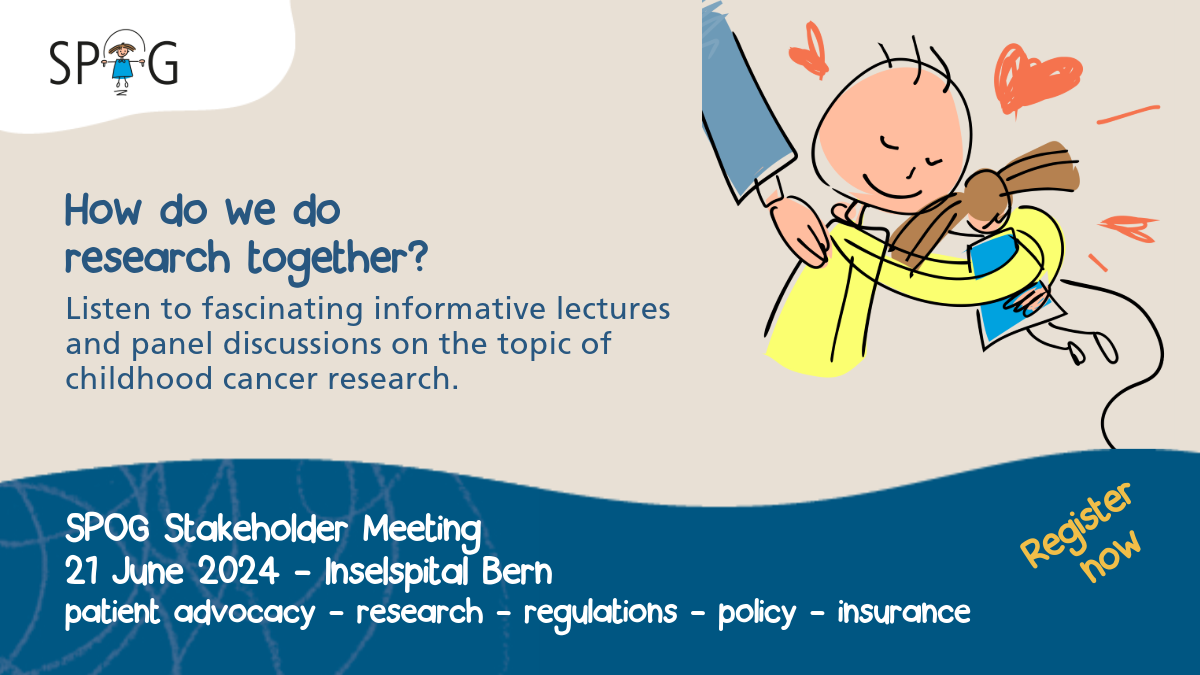Rhabdoid tumours are rare, extremely aggressive cancers that affect infants and young children almost exclusively. Because they are so rare, there is little information in the specialist literature on their frequency, causes and treatment strategies for these cancers.
Standardised treatment concepts are currently being established in a number of European countries and in the USA. The EU-RHAB registry contains the first-line therapy recommendation for rhabdoid tumours in each anatomical location. About three children and adolescents are affected by this disease every year in Switzerland and can participate in the EU-RHAB research project.
The EU-RHAB registry was set up by a group of specialists whose work is concerned particularly with rhabdoid tumours. The aim of this research project is to record all patients with a rhabdoid tumour in order to compile data on frequency, age, localisation and therapeutic success. Evaluation of these data should increase understanding of this rare disease, thus leading to improved therapy with the best-possible chance of recovery. The specialists have also developed a therapeutic regimen based on the knowledge available in the current literature and the experience of the groups of experts. The centre providing treatment can contact the study office with specific questions and obtain information about similar cases at other participating hospitals, for example. Participating patients therefore benefit from a second opinion on the diagnosis, the radiological images and the therapy plans.
The University clinic of Augsburg in Germany is responsible for the international implementation of the study as sponsor. The Swiss Paediatric Oncology Group (SPOG) is responsible for performing the study in Switzerland (sponsor representative).
In short
- This research project is investigating rhabdoid tumours, which are rare, extremely aggressive cancers that affect infants and young children almost exclusively.
- Since they are so rare, scant reliable data are available on the causes of these tumours and possible treatment strategies.
- This research project is collecting data from all the affected patients. This will enhance the specialist knowledge of doctors and help in the development of new treatment strategies.




